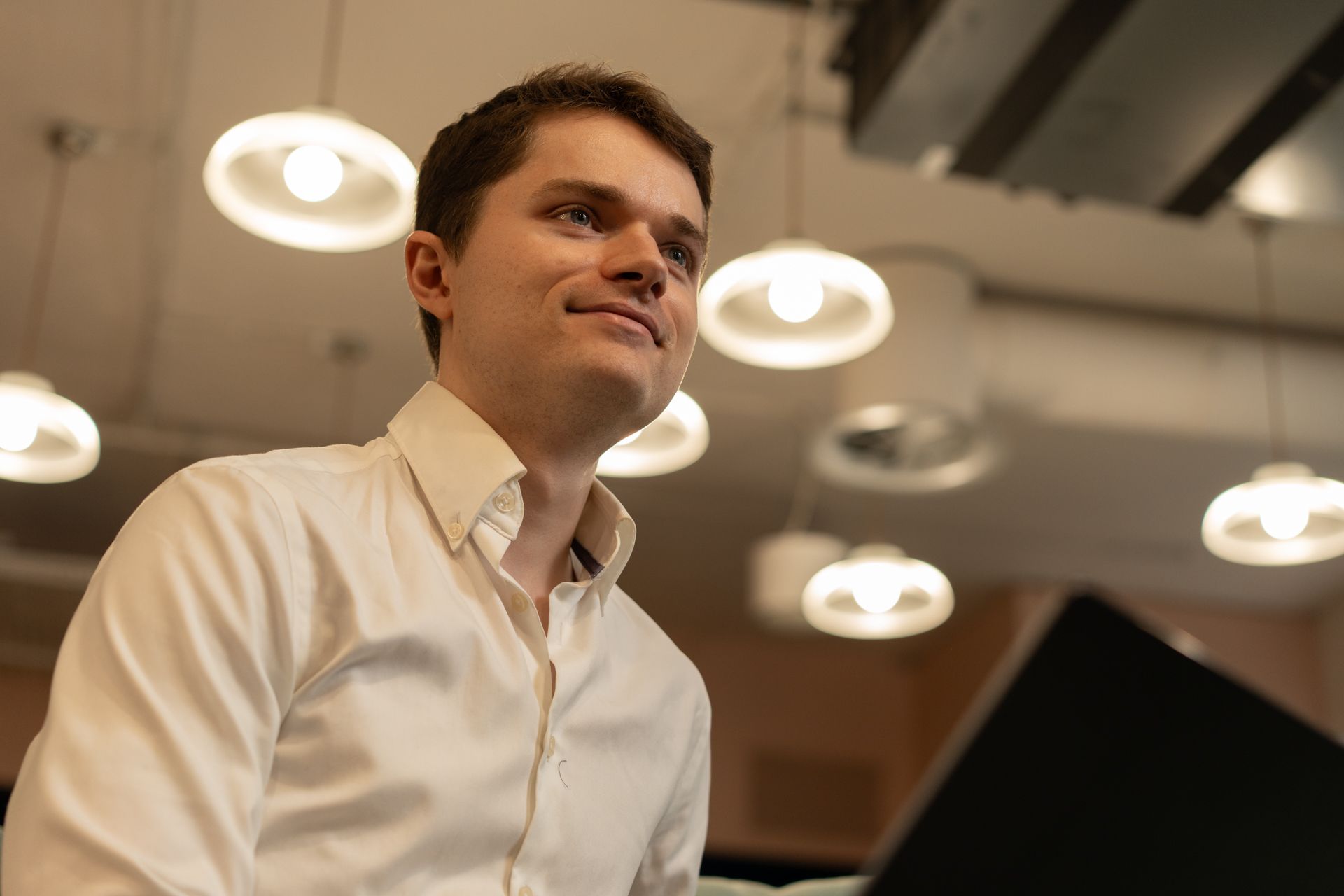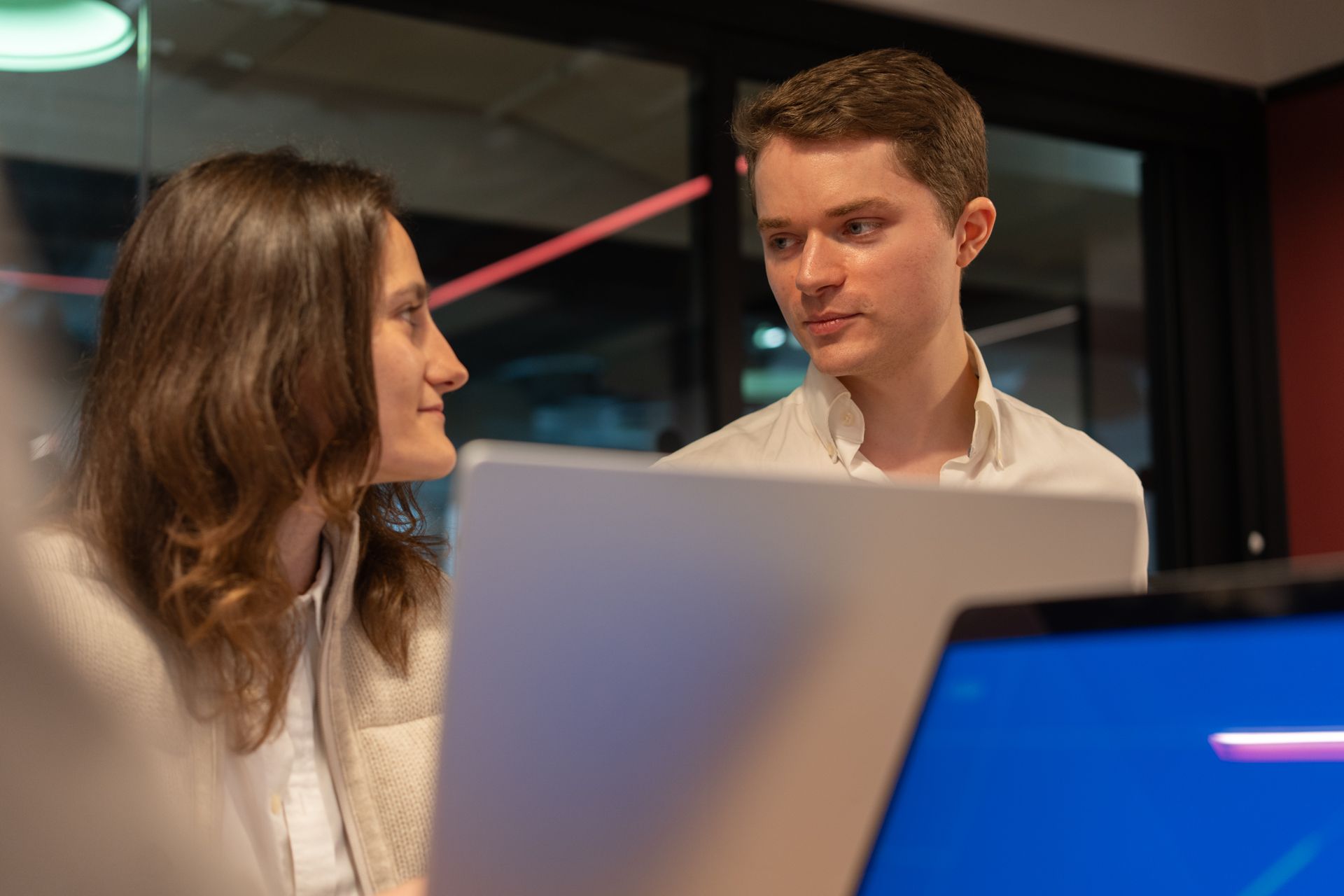The People Behind Vincent: Jake Rutherford
The People Behind Vincent is a new series designed to shine a light on the talented people driving innovation at vLex. First up is Senior Research Engineer, Jake Rutherford. Discover what drew him to legal tech, surprising facts, and his thoughts on the future.

This new series shines a light on the talented people behind our technology. From what drew them to legal tech to surprising facts and thoughts on the future, it’s a behind-the-scenes look at the people powering legal AI.
First up is Jake Rutherford, our Senior Research Engineer.
Welcome, Jake. Let's start at the beginning. What first drew you to a career in tech?
I've always had a knack for art, maths, and physics, so I initially chose to study mechanical engineering at university. But I soon found my passion really lay in the programming, data analysis, and modelling components of the degree. At the time, the term ‘data science’ was just becoming mainstream, and my university was one of the first to offer an undergraduate programme in it. Recognising where my interest truly was, I switched courses.
And how did you make the jump from data science into the world of legal tech specifically?
My first real taste of it came during my Master’s in Business Analytics at UCL. As part of an internship with a legal tech start-up, I was tasked with making complex legal contracts easier to understand. I worked on fine-tuning transformer models to simplify and summarise contractual language, with one of the goals being to prevent people from signing up for financial products they didn't fully understand. It was fascinating work, and I really enjoyed it.

So, what does a Senior Research Engineer working on Vincent actually do? How would you explain your job to friends and family?
I tell them I’m building an AI system that knows the law and can help legal professionals with their work.
That sounds fascinating. Could you dive a bit deeper into the specific projects you're working on to achieve that?
Sure. I've been building out Vincent’s underlying framework for creating autonomous agents that can handle complex, multi-step legal tasks with minimal user input. I also work on creating guided workflow experiences, where the AI is taken down a reliable, repeatable path to ensure accuracy. And to make sure our AI truly knows the law, I’ve been working on improving information retrieval and optimising the entire retrieval stack.
It sounds like you're building on a lot of past experience. Can you tell us about some of your previous roles?
Definitely. This work builds on my work with the University of Oxford, where my efforts have been focused on building autonomous research agents, and structuring information in vast document collections to make it accessible to those agents. During my time at Mishcon de Reya, I helped develop an AI solution to a major problem in the music industry: ensuring artists receive the royalties they are owed by accurately tracking their contributions. Before that, I worked at GOV.UK, where I used a combination of network science and NLP to help make the site's vast library of content easier for millions of people to find.
You're clearly drawn to complex problems. What would you say is the core principle that drives you professionally?
My professional drive is built on a simple but powerful principle: the greatest growth comes from leaning directly into discomfort. This belief wasn't formed in an office, but from learning to overcome a debilitating fear of speaking that I carried for much of my childhood. When I got to university, I decided to confront it head-on by joining a public speaking society and entering a competition. It was terrifying, and while the fear never vanished completely, I learned how to manage it and perform despite it.
How did that experience shape your approach to your career?
That experience became the foundation for everything. It taught me that being open about your weaknesses or lack of knowledge isn't a failing; it's the fastest path to learning. It's a major reason why I'm so motivated by autonomy at work – the trust and freedom to tackle complex problems where the answers aren't obvious and there's a risk of looking foolish.
Speaking of plugging gaps in knowledge, if you could have any superpower to help with your work, what would it be?
It would certainly be nice to be able to plug gaps in my knowledge faster. If I could have a superpower, it would be the ability to instantly read, understand, and retain vast amounts of information, like Mike Ross in Suits.
It sounds like you have a great support system to help maintain that mindset.
I do. I have to say, my wife has been a huge champion of this mindset. Her encouragement to focus on self-belief and to pursue what you truly deserve has been a constant source of support, reinforcing my conviction to take on challenges rather than settle for the comfortable path.
It's clearly a demanding job. What do you do to switch off? Or do you switch off?
When I switch off from work, I try to exercise, socialise, and take trips away. But in truth, I struggle to switch off completely. A lot of my spare time is spent working on side projects, like one with the University of Oxford aimed at supporting corporate accountability. We’ve built an AI system to find buried evidence in millions of documents that will help bring claims against major corporate polluters.
To wrap up, what advice would you give to someone who wants to follow a similar career path?
Don’t be afraid to look stupid and ask lots of questions. I’ve embraced that way of thinking throughout my career. It can feel uncomfortable, but being open about what you don’t know is how you grow.
On the technical side, keep building things with your own hands. While AI assistants are helpful, and can be amazing teachers, they can take away valuable learning opportunities if you're not careful. Find serious, collaborative projects that will enhance your CV. There are lots of open-source projects where anyone can contribute, so don’t be afraid to roll up your sleeves and build in public.
Finally, looking to the future, where do you see AI heading? Are you optimistic?
Predicting the timelines for AI progress is incredibly difficult. Most recent advances have been driven by scaling compute, but it’s not obvious how long that approach will continue to yield such dramatic benefits.
One way or another, however, I don’t doubt that we’ll eventually see a breakthrough that creates AI systems genuinely living up to the hype. I’m nervously excited about that prospect; the potential for huge economic disruption alongside the immense upside for human progress is staggering. In the meantime, my focus is purely pragmatic: getting as much value as possible out of the systems we currently have. We can deliver incredible results for legal professionals right now, without needing to wait for some kind of super-intelligent, polymath demigod AI.

Join the team
We're always seeking brilliant, talented individuals to join our growing team. If you're interested in being part of our mission, we'd love to hear from you. Visit our careers page here.